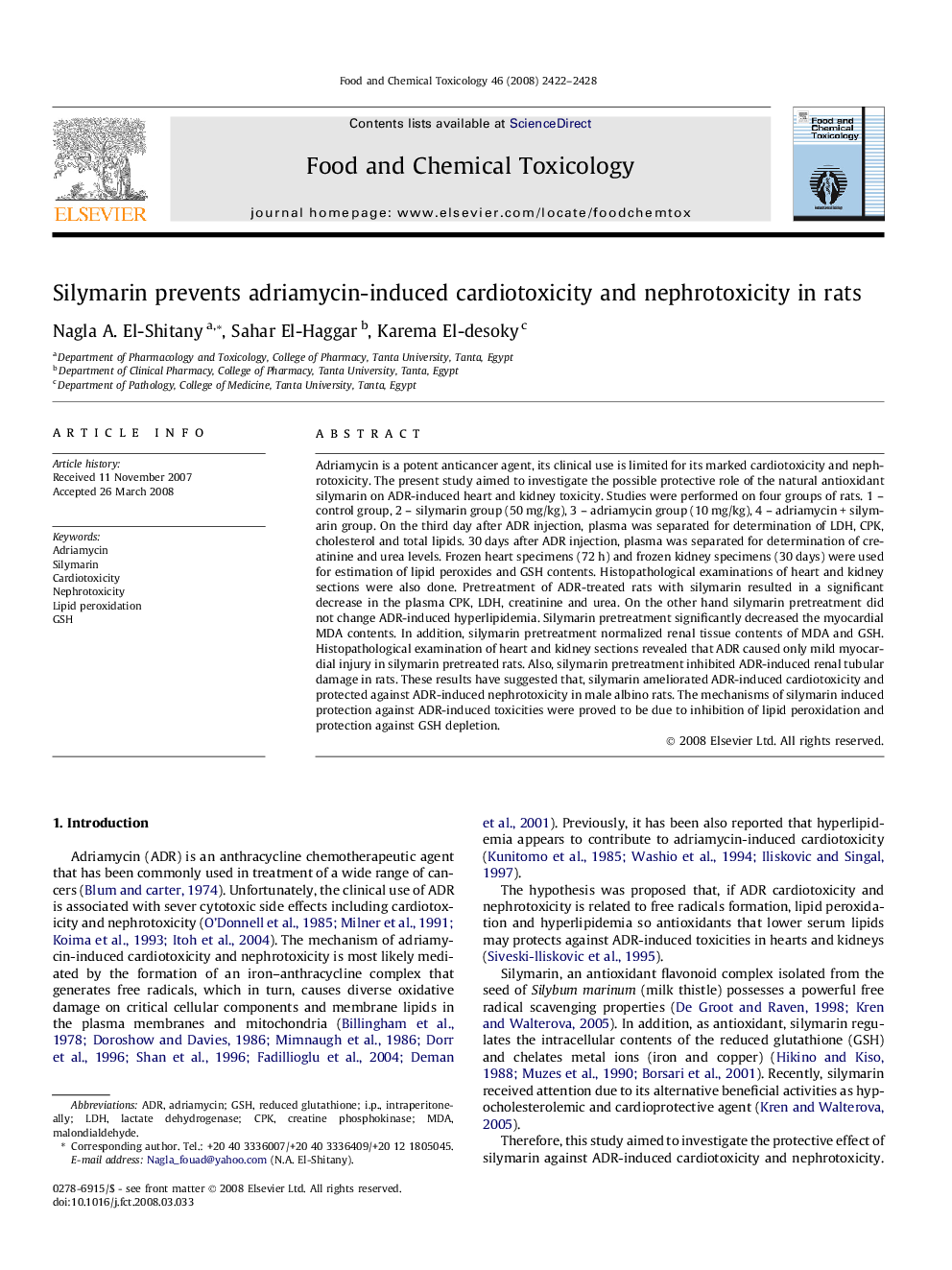| Article ID | Journal | Published Year | Pages | File Type |
|---|---|---|---|---|
| 2586577 | Food and Chemical Toxicology | 2008 | 7 Pages |
Adriamycin is a potent anticancer agent, its clinical use is limited for its marked cardiotoxicity and nephrotoxicity. The present study aimed to investigate the possible protective role of the natural antioxidant silymarin on ADR-induced heart and kidney toxicity. Studies were performed on four groups of rats. 1 – control group, 2 – silymarin group (50 mg/kg), 3 – adriamycin group (10 mg/kg), 4 – adriamycin + silymarin group. On the third day after ADR injection, plasma was separated for determination of LDH, CPK, cholesterol and total lipids. 30 days after ADR injection, plasma was separated for determination of creatinine and urea levels. Frozen heart specimens (72 h) and frozen kidney specimens (30 days) were used for estimation of lipid peroxides and GSH contents. Histopathological examinations of heart and kidney sections were also done. Pretreatment of ADR-treated rats with silymarin resulted in a significant decrease in the plasma CPK, LDH, creatinine and urea. On the other hand silymarin pretreatment did not change ADR-induced hyperlipidemia. Silymarin pretreatment significantly decreased the myocardial MDA contents. In addition, silymarin pretreatment normalized renal tissue contents of MDA and GSH. Histopathological examination of heart and kidney sections revealed that ADR caused only mild myocardial injury in silymarin pretreated rats. Also, silymarin pretreatment inhibited ADR-induced renal tubular damage in rats. These results have suggested that, silymarin ameliorated ADR-induced cardiotoxicity and protected against ADR-induced nephrotoxicity in male albino rats. The mechanisms of silymarin induced protection against ADR-induced toxicities were proved to be due to inhibition of lipid peroxidation and protection against GSH depletion.
